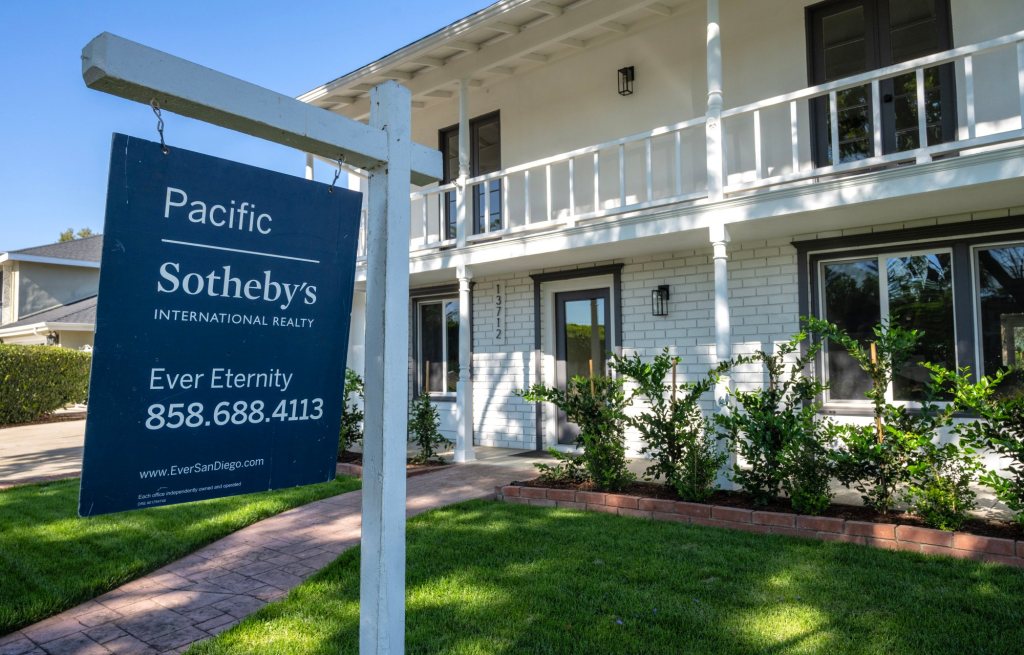A landmark legal settlement governing real estate commissions takes effect in a matter of days.Nevertheless, Nicholas Rosen of Castro Valley is still having a hard time getting agents to explain what will happen when he lists his home for sale next fall.“At this point, I have more questions than answers. I’m really not sure how the settlement will affect me,” said Rosen, 38, an attorney who grew up in Riverside County. “I wanted to ask what would be in place of that (traditional fee). Would it be a negotiated rate? Would it be a flat fee? … She really couldn’t answer.”Questions clearly outnumber answers as Realtors race to implement the biggest revision in decades to their compensation system. To resolve a $1.8 billion class-action challenge to seller-paid commissions, the National Association of Realtors agreed to two changes in how buyers’ agents get paid:— Seller offers to buyer agents no longer can be made in a multiple listing service, or MLS.— Homebuyers now must sign contracts spelling out how much their agents will get paid before the agents can begin showing them homes. Until now, such agreements were rare.See also: Sold a home recently? Here’s what you’ll get from the $418 million Realtor settlementAgents said it’s going to take several months before buyers, sellers and agents figure out how to operate under these new rules, effective Aug. 13 in most of Southern California.“Am I worried there’s going to be confusion? Yes, of course,” said Caleb Keith Gonzalez, broker-owner of VonKeith Properties in Dana Point. “Do I think there’s going to be a period that we’re going to transition into clarity? Absolutely. … We have to continue to just allow ourselves to adapt and evolve.”Some California home sellers said they were expecting more from the settlement than they appear to be getting. They anticipated a drop in the typical 5%-6% commission rate. They’re hoping to shed the burden of paying buyer commissions.“Hell no,” Donna Johnston, 53, of Studio City said when asked if sellers should continue paying buyers’ commissions. “Why should we? It’s a separate transaction.”But local real estate brokers doubt those changes will occur.See also: House hunters fear Realtor settlement could make homebuying harderWhile the mechanics of their business will undergo major alternations, the current compensation system will remain largely intact, they say. Sellers will continue paying buyer’s fees, negotiating commission payments along with other deal points like price, repairs and contingencies.“Nothing in the settlement precludes the seller from offering a buyer-broker compensation,” said Anne Russell, president of the Greater Los Angeles Realtor Association. “It simply says that those offers of compensation can no longer be advertised in MLSs. They can be advertised on broker’s websites. … We can still put them on our signs.”That approach prompted Lake Forest home seller John Walcher to call the NAR settlement “a shell game.”“At this point, it feels like nothing is changing,” Walcher said.Frenzied hubbubOf course, the 107-page NAR settlement unveiled in March includes many provisions apart from commission changes.For one thing, it shields NAR and its 1.5 million members from further litigation after facing 26 class-action antitrust lawsuits.And it reduces NAR’s share of a $1.8 billion verdict handed down last October to $418 million.The case stemmed from lawsuits challenging NAR’s “cooperative compensation” practice, which required seller agents to include offers of buyer-agent compensation in MLS listings. That requirement, the lawsuits alleged, kept U.S. real estate commissions artificially high.But it’s the commission changes that are generating a frenzied hubbub in the real estate industry.The California Association of Realtors revised 19 of its contracts, forms and addenda to comply with the settlement, then scheduled a dozen town hall meetings to familiarize agents with the changes. The association also created online classes to prepare agents for this moment.“It’s a lot of chaos and a lot of confusion,” said Tom Pelton, manager for Coldwell Banker offices in Palm Springs, Palm Desert and Indian Wells. “Agents (have to) reverse how they’ve always done business. They have to learn the new conversations.”Art Carter, CEO of the California Regional MLS, which covers most of Southern California, said his organization has done eight to 10 webinars explaining the modifications to agents, plus in-person speaking engagements at individual brokerages. At least 30,000 people have viewed CRMLS videos explaining the revisions.“We’re just doing as much as we possibly can to educate our brokers and our agents as to what these changes mean for them,” Carter said. “That’s been the biggest lift for us as an organization.”See also: California Realtors accused of creating ‘anti-consumer’ formsRancho Santa Margarita broker Lori Namazi, co-owner of Laurel Real Estate Resources, said she and her agents have been attending CAR training sessions and town halls, “making sure everyone is on the same page.”She worries, however, that there’s still a lot of brokers who don’t know about the NAR lawsuit, much less the settlement.“A lot of agents and brokers have put their heads in the sand,” Namazi said.Pelton and others said agents must learn how to explain new legalese to clients. In particular, they need to get buyers to understand why they now have to sign contracts.Some brokers said their agents are practicing scripts and doing role-playing to prepare.“Outside people are teaching the scripts on how to narrate the change so that we can sound better,” said Rita Tayanaka, broker-owner of Canyon to Coast Real Estate in Mission Viejo. “We’re learning as we go. … We have to be comfortable explaining the change.”Meanwhile, efforts continue to advertise compensation offers outside the MLS.“We will be offering that compensation on our websites, our agents’ individual sites, … in all of their marketing materials (and on) social media,” Pelton said.The online publication HousingWire recently identified four new websites aimed at helping agents share compensation offers outside the MLS.“(Agents) are going to be getting all these calls, texts and emails about if their seller is willing to offer compensation, on top of all their other communications,” an Iowa real estate executive told HousingWire. “We knew there had to be an efficient way of handling this sort of communication.”Different expectationsHome sellers have different expectations than real estate agents, especially after reading headlines saying 6% commission rates are going away.Thirteen out of 15 home sellers responding to an online Southern California News Group survey said they’d might not pay the buyer’s commission when they sell their home.Among them was Paul Hoff, who’s preparing to sell his 1930s cottage at the El Encanto Hotel in Santa Barbara.“I philosophically disagree with the structure of the seller paying the buyer’s way,” said Hoff, 68, a retired aerospace manager.Agents pushed back on Hoff’s position. One of the three agents he interviewed warned, “You know, if you don’t offer the buyer’s agent money, they may not show your house.”Walcher, of Lake Forest, heard the same argument.“Our agent said that if we don’t put something in there, there’s a far greater chance that the buyer agents are not going to make our home a priority,” he said.Agents used that same reasoning to persuade sellers to pay higher commissions to buyer agents under the old system, according to lawsuits against NAR.
Walcher, who is in the process of listing his four-bedroom house of 21 years, said if he ends up paying a buyer’s commission, “I’m just going to ask for more money for my home.”The Johnstons are planning to sell their San Fernando Valley home possibly as soon as next winter so they can move closer to their son and his girlfriend in the Redlands area.Mark Johnston, 70, complained that paying a 6% commission on their $1.9 million home would generate about $57,000 just for the buyer’s agent.“That’s a lot of money,” he said.Yet, he’s willing to pay the buyer’s commission himself when he buys his next house in the Inland Empire.“It’s our transaction. The shoe’s on the other foot now,” he said.Nicholas Rosen and his wife are shopping for a home in Sonoma County, where the two met while going to college.“My wife and I are actively working with a Realtor to sell our house and then another one to buy a house, and both of them are not too sure what (the settlement) could mean for us,” Rosen said. “They keep on saying, ‘Well, we’ll get to it when it comes up.’ ”
Originally Published: August 2, 2024 at 8:30 a.m.




